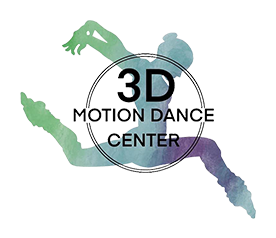The Benefits of Dance Classes for Early Childhood Development

As parents, we all want what's best for our children. We are constantly looking for ways to improve their physical, mental, and emotional well-being. One of the most effective ways to enhance early childhood development is through dance classes. Dancing not only teaches coordination and balance but also instills important life skills such as teamwork, concentration, and self-discipline. In this blog post, we will discuss the various benefits of dance classes for young children and how it positively impacts their early development.
1. Physical Benefits
Dancing is an excellent form of physical exercise that helps improve cardiovascular health, lung capacity, and overall fitness. It also assists in the development of motor skills, balance, coordination, and flexibility. Children who participate in dance classes at an early age tend to have better posture, stronger muscles, and greater physical awareness than those who do not. Additionally, dance classes reduce the risk of obesity and childhood diabetes, promoting a healthy lifestyle from an early age.
2. Cognitive Benefits
Dance classes require a great deal of focus, memory, and concentration. As children try to keep up with the steps or choreography, they are also developing their cognitive skills. Studies have shown that dancing improves cognitive abilities such as memory, attention span, and problem-solving skills. Furthermore, it helps children learn how to analyze and interpret movement, a skill that is valuable for academic pursuits such as reading comprehension or math problems.
3. Social Benefits
Dancing is a collective activity that requires cooperation, communication, and teamwork. Children who participate in dance classes learn valuable social skills such as patience, empathy, and respect for others. They also learn how to work together towards a common goal, build relationships with peers, and participate in group activities. Furthermore, dance classes help children build self-confidence, overcome shyness, and express themselves creatively. All these qualities are essential for a child's social development.
4. Emotional Benefits
Dancing is a form of self-expression that allows children to communicate their emotions, feelings, and experiences through movement. Dance classes help children understand and manage their emotions, become more aware of their bodies, and learn self-regulation. Dancing provides a healthy outlet for stress and anxiety and can be a source of joy and happiness. It also instills a sense of accomplishment, pride, and self-worth as children master new skills and techniques.
5. Lifelong Benefits
The benefits of dance classes go beyond early childhood development. Dancing builds a foundation for a healthy and active lifestyle, conflict resolution skills, and lifelong friendships. It instills a passion for the arts and culture and can be a lifelong hobby or career. Moreover, children who participate in ballet, jazz, hip hop, or any other dance genre often find that they excel in other areas such as sports or academics.
Conclusion
In conclusion, dance classes are an excellent way to enhance early childhood development. They offer physical, cognitive, social, and emotional benefits, and build a foundation for lifelong skills and habits. There is no better place to enroll your child in dance classes than 3D Motion Dance. Our experienced instructors provide a fun and nurturing environment for your child, where they can learn and grow at their own pace. Contact us today to learn more about our dance camps in Apopka, FL and classes for children of all ages.
